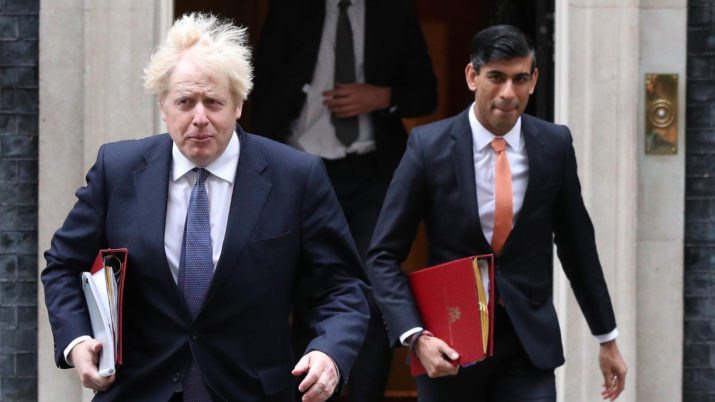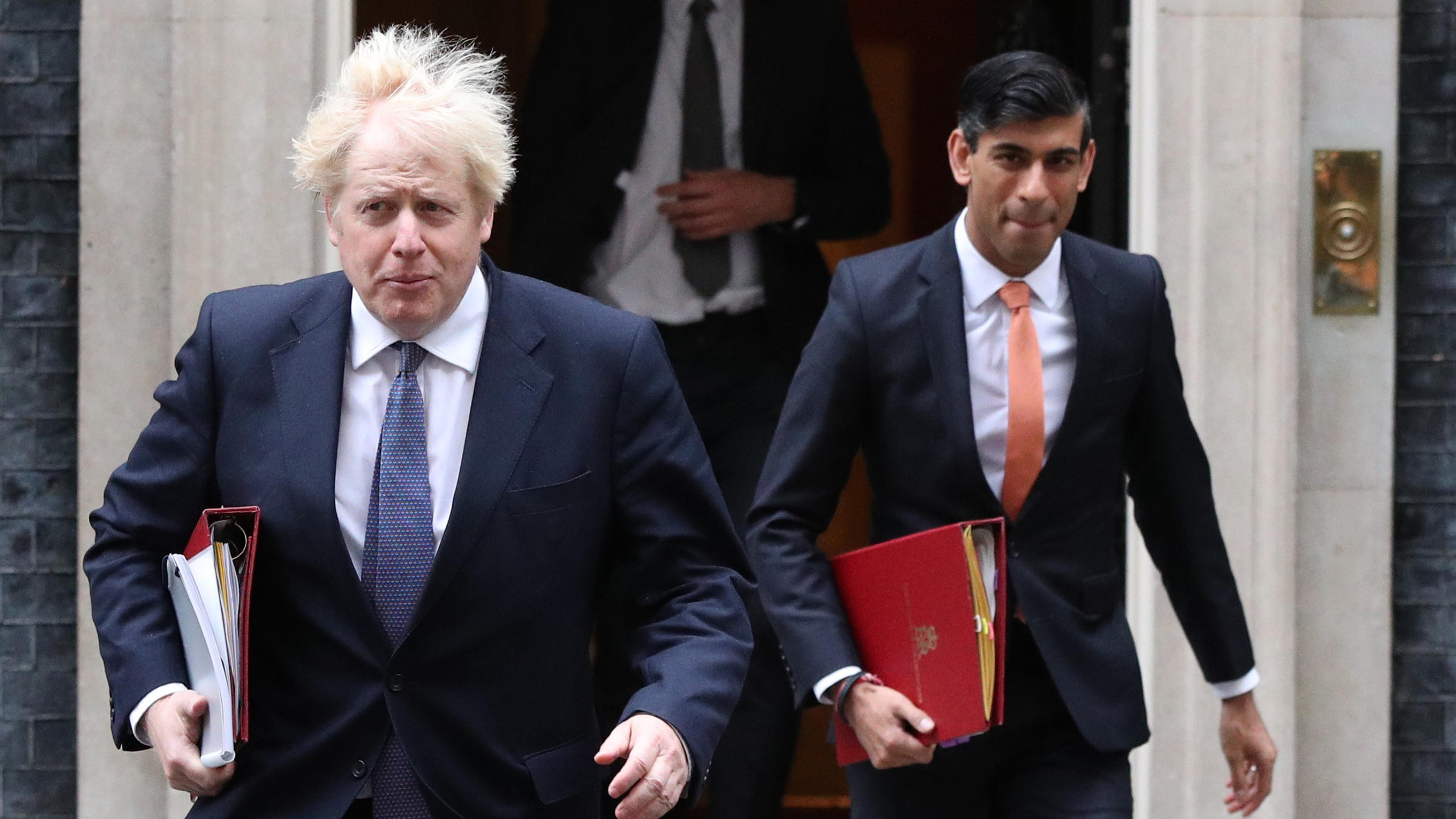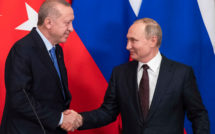

We all are in love with the Great British Baking Show. The show brings twelve British amateur bakers from diverse ages and backgrounds together to compete each week to be “star baker” with one unlucky soul being cut from the show if the tough but fair judges view their bakes as being over proved, under baked, having too little or too much flavor, bad design, or poor execution. Although a competition, the program displays Britain and the British in a beautiful way. Contestants are kind and helpful to one another. They all are in it together, holding hands for the judgements, and crying when a baker loses. They take tough judgements and advice with strength and fortitude. No whining is allowed. All bakers hope for a Paul Hollywood (the baking guru and judge) handshake—the highest accolade. The ultimate winner receives nothing except some flowers and a commemorative plate, but is known across the land. The show is a balm to all who struggle with the pandemic, weak government, and chaotic times. It is a salve to the soul and reimagines Britain as a wonderful place to be. For us British, the show is an hour’s escape from the sad reality of The Great British Kakistocracy that unfolds on a daily basis, with governmental incompetence on COVID-19, Brexit, and so much else. Today, the British government bears no resemblance to the competence and comity in the baking tent. It is instead a litany of poor performance, bad behavior, disingenuous and weak leadership, poor choices, and terrible outcomes; leadership by the least competent amongst us.
COVID incompetence and denial
Prime Minister Johnson has been Trumpian in his response to the COVID-19 pandemic. Deny. Down-play. Avoid proper sanitary measures. Underfund the health response. Announce a lockdown. Indeed Johnson was struck down by the virus himself because of his own foolish behavior and attitude to social distancing and the wearing of masks (just like Donald Trump). The human cost of the failure to take the dangers seriously soon enough has been massive and distressing: 763,000 cases and 44,000 deaths. Compare this with Chancellor Merkel’s resolutely clear and consistent approach: 300,000 cases and only 9,900 deaths.
Facing the ongoing pandemic, Johnson and his pals have handled the emergency in a manner Trump would also approve of, with friendship trumping competence and capability, and money flowing to toadies with no oversight or assurance on their ability to get the job done. For instance, the UK’s COVID-19 track-and-trace system has failed spectacularly with over $12bn in contracts going to firms run by unqualified friends of Johnson; meritocracy be damned. It has left citizens wondering, “If other countries can do it why can’t we?” The answer is that rank failure and incompetence at the top has real consequences and costs in a crisis. The economic cost of failing to bend the COVID-19 curve has been immense, with Britain performing worse than any other advanced nation, plunging into the deepest recession on record, with the economy shrinking by over twenty percent in the second quarter of 2020 after the lockdown commenced. Unfortunately, just as the government has failed to handle COVID-19 effectively, so too has it failed to negotiate a smooth exit from the European Union.
Deal or no deal
Prime Minister Johnson surged to power in 2019 in a massive and historic electoral victory over a hard left Labour Party, whose voters deserted the Tories believing Johnson would, as he promised, “Get Brexit Done.” The Prime Minister did strike an exit agreement with the European Union, which balanced his desire to leave with the need to sustain the Good Friday agreement. This latter agreement ended terrorism in Ireland in 1997 with a commitment to peace and no border between Northern Ireland and Ireland. The recent exit deal between the European Union and Britain required Northern Ireland to remain part of the EU customs union to ensure no border between North and South. This was a reasonable deal signed and passed into law in good faith and agreed by his European allies. That should have been the end of it. A deal is a deal. Except when Boris Johnson signs it.
Law or no law
The Prime Minister agreed to the exit terms and was expected to stand by it. That is what leaders and governments do. You sign a deal and move on. Not for this Prime Minister. Instead, he rushed a law through Parliament which explicitly violated the deal he had just inked a year earlier, by allowing the UK to unilaterally change aspects the already passed and legally binding exit agreement, calling into question the European Union’s oversight of trade between mainland Britain and Northern Ireland. The problematic law was excoriated by Valdis Dombrovskis, the Vice President of the European Commission as having “seriously damaged trust between the EU and the UK.”
The prime minister sent Brandon Lewis, the Northern Ireland minister to shockingly admit on the floor of Parliament that, “Yes, this does break international law.” The scene was staggering. Never seen before. Former Prime Minister Theresa May asked incredulously: “How can the government reassure future international partners that the UK can be trusted to abide by the legal obligations of the agreement itself?” A good question to which the government and the minster had no good answer. The Conservative Chair of the Judiciary Committee, Sir Bernard Jenkin was similarly shocked, stating: “I was astonished that a minister of the Crown should say to the House of Commons that we will attempt to breach international law.” In reaction to this stunning move, the two most senior lawyers in the UK government resigned. And yet, Conservative MPs still passed this abomination into law. The message is an irresponsible one for Britain and the British. Not conservative in any way. It is a government denying the rule of law, telling allies it cannot be trusted. Signaling to the people of Northern Ireland and across the country that the laws are a joke, we’ll do whatever we like.
Half-baked and under proved
Johnson’s Brexit strategy, including his embracing of illegal acts, is an embarrassment to any competent person. He has no plan, no recipe, and no strategy for success. His plans are half-baked and under proofed. As an old Etonian he is steeped in the myths of the British Empire, of limitless sovereignty and power. Johnson has delusions of British dominance, which have not existed since the end of the Second World War, except perhaps in English public-school history books.
Again, and again, Johnson and his government fail to take advice, fail to correct what doesn’t work, fail to consider the negotiating positions and strength of their opponents. Instead the government operates on the erroneous notion that Britain always holds the strongest hand, and that in the end Europe will have to agree to a deal on Britain’s terms. This is palpable nonsense. The UK has left the Union. The UK has breached the existing international exit agreement with the Union. Today the UK’s erstwhile allies have little or no reason to trust them to deliver in the future. Britain is in a very weak position, with few options and few remaining ingredients for a successful outcome. But still British negotiators act as if they are experienced top chefs in a leading restaurant, when in fact their French and German European Union trade negotiators are running rings around them, statements to the contrary are nonsense.
Come December 31, either the country exits with a minimally effective trade deal and some degree of continued EU regulatory oversight in return for market access (the better economic option) or Britain ends up with a “no deal Brexit is a deal” stance—that is to say a cover for a failure in the talks, and application of the WTO rules of trade—which would cause a great deal more economic pain to a country and people already hit by COVID-19 incompetence, a second wave, and the worst economic performance in Europe. Indeed, the government understands a no deal exit will have consequences. They are constructing huge lorry parks in Kent near the ports, to deal with the massive backlog of lorries that will occur if there is any delay in customs clearance – as there almost certainly will be. The reality come December 31 will not be a shining Global Britain of the national government advertising campaign, but a trading and coordination nightmare with real consequences for the cost of goods in Britain for the British. So, what we see in late 2020 not a panorama of a glorious future in England’s green and pleasant land, but a dark and foreboding winter and hard, cold, unforgiving spring to come. British voters are increasingly worried and growing tired of this incompetence.
Buffoonery is not funny when the grim reaper knocks
This litany of poor performance, terrible outcomes and ongoing pain is taking its toll on Johnson’s, and the Conservative Party’s, popularity. The Prime Minister’s performance in parliament has been abysmal, dragging down his support in parliament among is MPs and in the country. Johnson’s expression of annoyance and disdain often mirrors President Trump’s, seemingly signaling “I cannot be bothered with governing.” It is not a good look in the winter of 2020. Johnson’s truculent refusal to learn his briefs and thus perform more effectively during the weekly Prime Minister’s Questions, slams up against increasingly cutting cross examinations from the Leader of the Opposition Labour’s Keir Starmer, who is one of the best lawyers in the UK. In this clash of an entitled lazy performer against a competent committed calm operator, the latter wins out, again and again. Increasing numbers of British voters and baking show viewers appear to disapprove and have moved from right to soft left. By October 2020, the massive Conservative lead over Labour had evaporated with the parties tied at 40-40. It turns out that when crisis strikes and the grim reaper comes knocking, bumbling, buffoonery and batting away hard questions is increasingly unappealing.
A Johnsonian Churchillian show-stopper
Can Johnson turn it around? He failed badly in the signature round of the COVID-19 response. He stumbled badly in the technical challenge of Brexit negotiations. Can Johnson come up with an incredible three-tier show-stopper, and seize victory from the almost certain jaws of defeat? It is still just barely possible.
First, it is possible Johnson could still agree with a Brexit deal that avoids catastrophic damage to the UK’s economy, but doing so would require a rebuff of the hardline Euroskeptics in the Conservative Party who prefer an abrupt end, as well as freedom from Europe, no matter the costs. If Johnson does secure a workable trade deal, he will really have got Brexit done. Johnson can still stand up and push back at this late stage and secure an amicable agreement.
Second, the Prime Minister could turn things around and deliver for Britain by working diligently and quickly to repair the so-called special relationship with the United States after he placed all his political capital on Trump, only to find Joe Biden win by an electoral mile. The US President-elect will not be easily won over. Of Irish descent, Biden is on the record as warning the UK not to damage the Good Friday Agreement, or risk the chance of a US-UK free trade agreement; a deal that is viewed as essential by the UK Prime Minister. I expect the new US political and diplomatic reality is swiftly moderating positions in London, but still Johnson will need all his skill and diplomacy to ensure the UK remains important for the new US administration and president.
Third, looking further ahead, the British government will host the pivotal COP26 United Nations Climate Change Conference in Glasgow in the autumn of 2021. Johnson has tasked Mark Carney, perhaps the most influential central banker turned climate change activist of his generation, with preparing for a successful planetary, economic, and ecological outcome. Carney is working hard to help ensure COP26 marks a restart, a geopolitical and diplomatic electrification of the essential transition to net-zero. That is to say, Carney is working on the myriad collective and coordinated steps required to ensure governments can achieve the Paris Agreement goal of holding climate change temperature increases to well below two degrees Celsius by 2050, rapidly cutting greenhouse gas emissions across all our economies and countries.
COP26—if seized by Johnson—could galvanize decarbonization and speed the industrial transformation. This is essential to bending the curve on climate change and to ensuring that future generations of humans and thousands of other species can survive on a sustainable earth and thrive, rather than of wilt and die as the climate warms. Johnson, if he grabs the opportunity, could lead on this essential climate change transition and secure his place in history not as an ignominious disappointment, but as a farsighted Churchillian leader.
Can Johnson achieve all three goals on the international diplomatic stage: a workable trade deal with Europe; a repaired special relationship with the US; a COP26 triumph in Glasgow in the autumn of 2021? Perhaps. Will he succeed? We shall have to wait and see.
Stuart P. M. Mackintosh, PhD is Executive Director of the Group of Thirty, an international financial think tank, based in Washington DC. Routledge recently published a second edition of his book: The Redesign of the Global Financial Architecture: State Authority, New Dynamics and Risks. His new book, Climate Crisis Economics, will be published with Routledge in 2021.
Photo: 10/19/2020,UK:Covid: In ignoring his scientists, Boris Johnson has taken his biggest risk | Shutterstock
Published on November 20, 2020.




